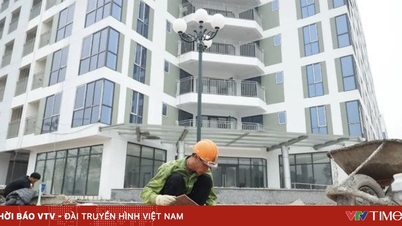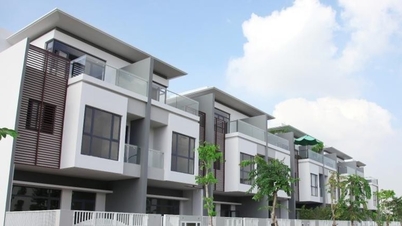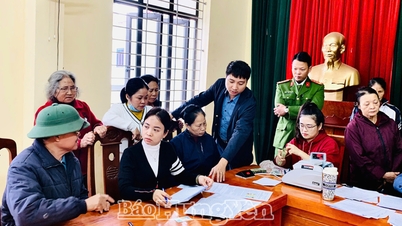According to the draft, each housing project or urban area will have a unique identification code, which is non-duplicated and unchanged throughout its life cycle. Each real estate product such as apartments, townhouses, and villas will also be assigned a separate code, helping to connect and retrieve data quickly, accurately and consistently between agencies.
When completed, the system will become a national real estate "digital map", automatically updated, transparent and connected from central to local levels, helping people and businesses easily look up information.

If approved, from 2026, individuals and organizations (domestic and foreign) will have to provide basic data such as type, address, area, ownership period, legal status. Social housing and public assets must also be declared in detail.
According to the plan, the infrastructure will be completed in the fourth quarter of 2025, data will be standardized in the first half of 2026 and officially operated from the fourth quarter of 2026, piloted in Hanoi , Hai Phong, Da Nang, Can Tho and Ho Chi Minh City, then expanded nationwide.
Regarding this draft, the Vietnam Federation of Commerce and Industry (VCCI) noted three issues.
Firstly, in Article 38, VCCI believes that the regulation that the management agency can assign an organization that is qualified and capable to operate the system still lacks specific criteria. The draft needs to clarify what type of organization this is, what the capacity standards are, and how the selection is made to ensure transparency.
Second, regarding Article 39, VCCI finds that the regulations related to the method of data exploitation are not unified. The draft states “written exploitation” for unpublished data, but the following part only mentions the method of “issuing accounts”. VCCI requests the Ministry of Construction to review, unify the regulations and clarify the case of refusing to grant the right to exploit information to avoid problems when applying.
Third, in Article 40 on information disclosure, VCCI notes that some data in Appendix I may include personal information (such as citizen identification numbers). Full disclosure may affect people's privacy. Therefore, VCCI recommends only disclosing aggregate information, not personal data.
VCCI believes that completing the above contents will help the draft decree become clearer, more transparent and feasible, while ensuring a balance between state management requirements and the interests of organizations and individuals participating in the market.
Source: https://congluan.vn/vcci-soi-du-thao-nghi-dinh-du-lieu-nha-dat-lo-ngai-ro-ri-thong-tin-ca-nhan-10316393.html


![[Photo] Panorama of the Patriotic Emulation Congress of Nhan Dan Newspaper for the period 2025-2030](https://vphoto.vietnam.vn/thumb/1200x675/vietnam/resource/IMAGE/2025/11/04/1762252775462_ndo_br_dhthiduayeuncbaond-6125-jpg.webp)
![[Photo] The road connecting Dong Nai with Ho Chi Minh City is still unfinished after 5 years of construction.](https://vphoto.vietnam.vn/thumb/1200x675/vietnam/resource/IMAGE/2025/11/04/1762241675985_ndo_br_dji-20251104104418-0635-d-resize-1295-jpg.webp)

![[Photo] Ho Chi Minh City Youth Take Action for a Cleaner Environment](https://vphoto.vietnam.vn/thumb/1200x675/vietnam/resource/IMAGE/2025/11/04/1762233574890_550816358-1108586934787014-6430522970717297480-n-1-jpg.webp)

![[Photo] Ca Mau "struggling" to cope with the highest tide of the year, forecast to exceed alert level 3](https://vphoto.vietnam.vn/thumb/1200x675/vietnam/resource/IMAGE/2025/11/04/1762235371445_ndo_br_trieu-cuong-2-6486-jpg.webp)





































































































Comment (0)